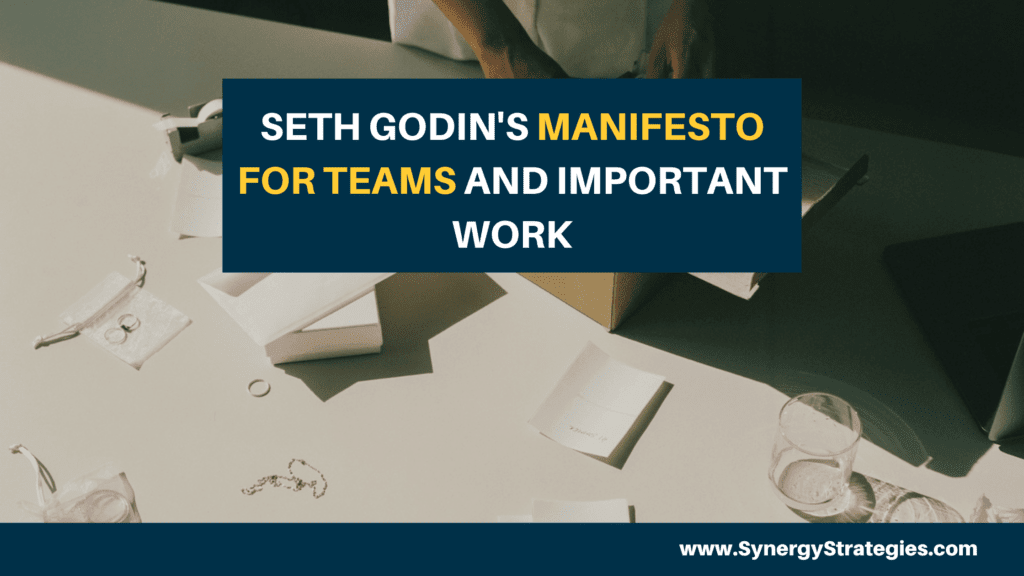Seth Godin is an inspiring truth-teller. In 2016 he posted this blog outlining agreements and mindsets for how a team operates when doing important work.
The list is all strongly insightful and wise rules to live by.
My personal favorites are:
- We are always under tight deadlines because time is our most valuable asset.
- If you can’t make a date, tell us early and often. Plan B, well prepared is a better strategy than hope.
- Overcommunicate.
- “I’ll know it when I see it,” is not a professional thing to say. Describing and discussing in the abstract is what we do.
- Make mistakes, own them, fix them, and share the learning.
I like these because when leaders do these items, they enjoy greater success and strong gaps. When they don’t they run into ambiguity, misunderstanding, and conflict.
Which do you like? Which do you struggle to do? How can these help you and your team to level up?
The list below is from Seth Godin’s blog: https://seths.blog/2016/02/a-
A manifesto for small teams doing important work
We are always under tight deadlines, because time is our most valuable asset.
If you make a promise, set a date. No date, no promise.
If you set a date, meet it.
If you can’t make a date, tell us early and often. Plan B well prepared is a better strategy than hope.
Clean up your own mess.
Clean up other people’s messes.
Overcommunicate.
Question premises and strategy.
Don’t question goodwill, effort or intent.
“I’ll know it when I see it,” is not a professional thing to say. Describing and discussing in the abstract is what we do.
Big projects are not nearly as important as scary commitments.
If what you’re working on right now doesn’t matter to the mission, help someone else with their work.
Make mistakes, own them, fix them, share the learning.
Cheap, reliable, public software might be boring, but it’s usually better. Because it’s cheap and reliable.
Yesterday’s hierarchy is not nearly as important as today’s project structure.
Lock in the things that must be locked in, leave the implementation loose until you figure out how it can get done.
Mostly, we do things that haven’t been done before, so don’t be surprised when you’re surprised.
Care more.
If an outsider can do it faster and cheaper than we can, don’t hesitate.
Always be seeking outside resources. A better rolodex is better, even if we don’t have rolodexes any more.
Talk to everyone as if they were your boss, your customer, the founder, your employee. It’s all the same.
It works because it’s personal.






